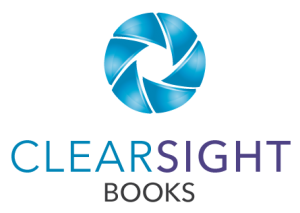
On a recent call with my mastermind group, I mentioned that at some point I’d want to ask them for feedback on a book I was writing. Naturally they were curious about the topic. As I began to describe it, I realized I was struggling with the book’s focus. Was it a practical how-to-write-a-book book, or was it a book of strategic essays on writing and mindset? How-to felt sensible to me, but strategic felt interesting.
The group members responded enthusiastically to the book idea overall, but quickly agreed with one member’s statement: “When I read books about my own craft, I find the ones about mindset most helpful. I need to learn how to be something, not how to do something.” This brief interaction suddenly opened up new possibilities and reminded me how much you can improve your writing through talking.
Talking about your writing can help you…
Find energy, find focus.
Sometimes you simply don’t know what to write. You have multiple ideas and can’t choose. Or maybe like me, you can’t find the right focus. Sometimes we are shy about the things we care about. Maybe they seem silly, or overly earnest. We won’t always admit to ourselves what we want or don’t want, but our bodies often give us away.
Ask a conversation partner to observe your facial expressions, vocal tone, and other physical reactions as you describe your ideas to them. When you talk about something you are interested in, your face lights up, your voice has a different volume or pace, you sit taller. Your partner will quickly notice when the energy shifts and can give you that feedback.
How this helps your writing: When you write about something you care about, from the beginning your writing will hold more emotional intensity, and thus will be more likely to engage your readers.
Keep moving, meet deadlines.
I spoke with someone recently who spent years on a book proposal but was nervous about meeting his publisher’s deadline, a year out. He knew he had the chops to write the book but was worried he wouldn’t be able to move fast enough because he wanted it to be perfect.
Perfectionism can yield a lovely product and is a fine approach if you have unlimited time. But who has unlimited time? And when you have a deadline, you must keep moving.
In writing, perfectionism often shows up as reworking the same chapter over and over without moving on. Getting distracted with tangential research. Trying to find the perfect solution rather than a reasonable solution.
If you notice yourself spinning like this, have your conversation partner listen to you describe the issues, ask questions that help you find an answer if needed, and offer feedback (assuming they are a reasonable stand-in for your readership). Talking with them will help you stop swirling, get out of your head, and regain perspective so you can keep moving.
How this helps your writing: While perfecting a paragraph or chapter may make for some lovely language, optimizing the piece can suboptimize the whole. In other words, you can describe the leaves on the trees and forget to mention the trees are in a forest. When you keep moving through your first draft, you can better revise holistically—while hitting your deadlines.
Gain clarity, help your readers.
When I coach clients who are writing a book, they send me manuscript pages for review prior to each session. While we work on craft, mindset, and logistical issues, often we spend the bulk of our time on their content—how they are expressing the ideas they want to get across.
In one recent session we went over the same concepts three times. Each time the author stated the concepts differently. And each time, the concepts became clearer for me, the “reader.” In the last fifteen minutes of our ninety-minute session, the author noted how important it was to make a compelling argument in part one. If the readers didn’t buy the premise, the rest of the book was for naught. This was the first time that priority had actually been stated. And recognizing it led to questions about 1) how to make the case, and 2) how true that assumption actually was. Could there be a way to entice the reader to continue with a willing suspension of disbelief?
We would not have gotten to these ahas if we hadn’t been talking for an extended period of time. I envision this in-depth conversation like a spiral, with each loop around the topic taking us closer to the clear articulation in the center.
Whether you use a book coach or a colleague for an extended conversation like this, find someone who will ask questions but also allow you the space to pause and think and to repeat yourself.
How this helps your writing: When an active listener asks for clarification, you yourself get clearer on what you are saying and why you’re saying it. That makes it easier to get the right words on the page so your readers know precisely what you mean.
Talk it out
The next time you find yourself sitting at the computer trying to write and thinking “I can’t decide,” “This is taking too long,” or “I’m not sure this is clear,” find a friend or colleague to talk to. Tell them what you are up against and how they can help you improve your writing through talking. Then talk it out.
Need a conversation partner to help you focus your book and keep moving? I’m here for you. Get in touch at karin@clearsightbooks.com or 919.609.2817.
Recent and related
Choosing a Business Book Topic
Match Your Nonfiction Writing Approach to Your Content: Gain Efficiency, Relieve Pressure (guest post on the Alliance of Independent Authors)
Book recommendation: To see the power of talking in clarifying thoughts and ideas, albeit in a somewhat different context, I highly recommend Creatures of a Day by Irvin D. Yalom. The renowned psychoanalyst shares beautifully written (highly disguised) stories of his experiences working with clients. Very instructional.

